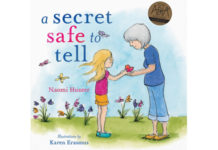Reading to babies and young children is the first step in helping them learn to read for themselves. Even babies who are too young to speak learn from being read to. Parents can play an important role in maximising these benefits for their children, by reading to them often and from an early age. In fact, reading story books aloud to children is the single best way to help them learn to read.
Pre-reading and reading skills
One of the primary and most obvious benefits of reading to children is that it teaches them how to read for themselves. Being able to read is an important foundation for cognitive development, academic achievement and doing well in life. It’s a skill children should begin developing from an early age, and parents play a key role in teaching their children to read.
Babies and toddlers
Young children (toddlers), who still do not recognise letters and cannot read even simple words for themselves, will develop pre-reading skills when they hear text read aloud. Looking at the printed text and pictures in children’s books as they are read aloud will let your young child begin to understand reading, for example that letters represent sounds, and that letters go together to form words that can be read and have meanings. As children grow up they will start to recognise individual letters and words.
Preschoolers
Preschool age children (3-5 year olds) generally recognise some letters (e.g. the letters of their name), and as they grow will begin to recognise simple words (e.g. cat) and later more complex words. Reading to preschool age children helps enhance their emerging reading skills (i.e. helps them read more easily), and develops a foundation for future reading success. The more a preschool aged child is read to, the more their reading ability improves. 4-5 year old children who are read to every day have reading abilities that are equivalent to children twelve months older than them, who are read to less than three days a week. Being read to 3-5 days a week increases reading ability to the equivalent of a child 6 months older. The effects of reading to children at age 4-5 last at least up until the child is 10-11 years old. These academic achievements occur for all children, regardless of social or economic background.
Older children
Even later in life, reading aloud to children helps improve their reading ability, especially their ability to comprehend the meaning of texts. It helps children in late primary school develop skills like:
- Ability to make inferences, that is to understand things that are implied in the text but not directly stated. For example, to know that two children are siblings because a book says they have the same parents.
- Ability to make connections between things that they read about and their own lives. For example, the feelings of a character and their own feelings.
- Ability to predict. For example, what is likely to happen next in the story.
- Ability to visualise, that is to form mental pictures of the things that are read to them.
Structure of writing
Being read to helps develop a child’s understanding of how writing is structured, and how the components of writing (e.g. letters, punctuation, sentences) work and relate to each other. For example, when they are read to, children will learn that stories have a structure, (a beginning, middle and end), and that different kinds of things happen in each of these stages of the book. By seeing printed text on the page and hearing it read to them, they will increase their understanding of how letters, words and sentences are formed in print, and how printed text gives direction to readers (e.g. to pause after a full stop).
How to read text
Reading books to children helps them learn the basics of how to read a book, or any other type of text. Which end of the book to open is not something children are born knowing. Nor do they know that English text is read from the left to the right side of the page. These are things young children will quickly learn, simply from watching you as you read books aloud to them.
Vocabulary
Reading to children introduces them to new words, and in doing so expands their vocabulary (the range of words they know and can use effectively in their speech). The number of words a child knows when they begin school determines how much of what their teacher says or reads to them they will actually understand. Children with larger vocabularies will understand more, and have a good foundation for understanding the instructions and advice of their teacher.
Enunciation skills
Reading aloud is also an important way to help your child learn to speak words and pronounce them correctly. Help them by speaking deliberately and carefully as you read. Your child will develop greater familiarity with the basic sounds that the English language incorporates. Toddlers will probably try to show off this developing knowledge by babbling and perhaps even squealing in excitement as you read to them. Preschoolers might interrupt to read words that they recognise, or tell parts of the story (if it is a familiar book), and you’ll help develop their abilities by encouraging them to do this.
Purpose of reading
Being read to helps children understand that people read with a purpose. Although reading is often done purely for enjoyment (a very important purpose!), reading a variety of books to children, including non-fiction (factual) books, will help them understand that reading is also an important way of finding out things they did not know about. Allow your child to choose books about things they are interested in. This helps them understand that people read for many different reasons, and that the types of books and other texts we read depends on the purpose.
Love of reading
Reading to a baby or young child sends them a message that reading is important, and helps them learn that it is also a great pleasure. For all children, being read to from a young age stimulates their desire to read books themselves, and teaches them to love reading. Later in life this will make them more likely to choose a book than a television show or video game. Reading to children is also a time that parents can enjoy, and show that they themselves love reading.
More information

Learn more about the cognitive, emotional and developmental benefits of reading to children here.
References
- International Literacy Association. Make the most of reading aloud. 2017. [cited 22 June 2017]. Available from: [URL link]
- Women and Children’s Health Network. Reading with Babies. 2015. [cited 16 June 2017]. Available from: [URL link]
- Abram T, Reading aloud to children has many benefits. Michigan State University- Extension. 2012. [cited 25 June 2017]. Available from: [URL link]
- Victoria Department of Early Childhood Development. Reading to Young Children- a head start in life. 2013. [cited 15 June 2017]. Available from: [PDF]
- Victorian Government Department of Education and Training. Reading with your child. 2017. [cited 15 June 2017]. Available from: [URL link]
- Virginia Early Childhood Development Alignment Program. Milestones of child development- A guide to young children’s learning and development from birth to kindergarten. 2013. (cited 12 March 2017). Available from: [PDF]
- Crockton The benefits of reading aloud to children in Grades 5 and 6. Education Masters. Paper 49. [cited 25 June 207]. Available from: [URL link]
- International Literacy Association. Teacher read aloud that models reading for deep understanding. 2017. [cited 22 June 2017]. Available from: [URL link]
- Cornell University Extension Program. Benefits of reading to your child. 2016. [cited 25 June 2016. Available from: [URL link]
- International Literacy Association. Make time for reading. 2017. [cited 22 June 2017]. Available from: [URL link]
- International Literacy Association. How to help a child choose a book. 2017. [cited 22 June 2017]. Available from: [URL link]
- Kalb G, van Ours JC. Reading to young children: A head start in life? 2013. [cited 16 June 2017]. Available from: [PDF]




 (3 votes, average: 3.67 out of 5)
(3 votes, average: 3.67 out of 5) 






